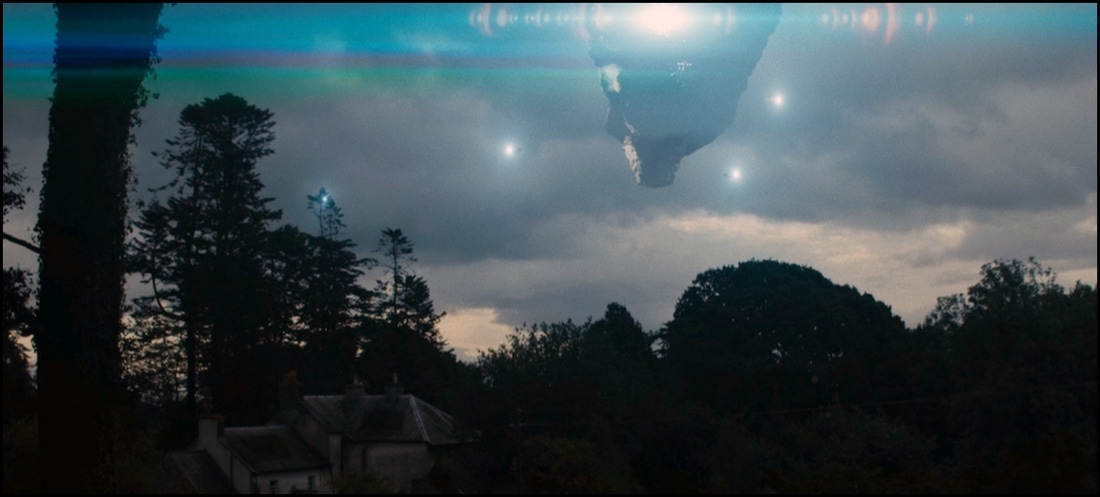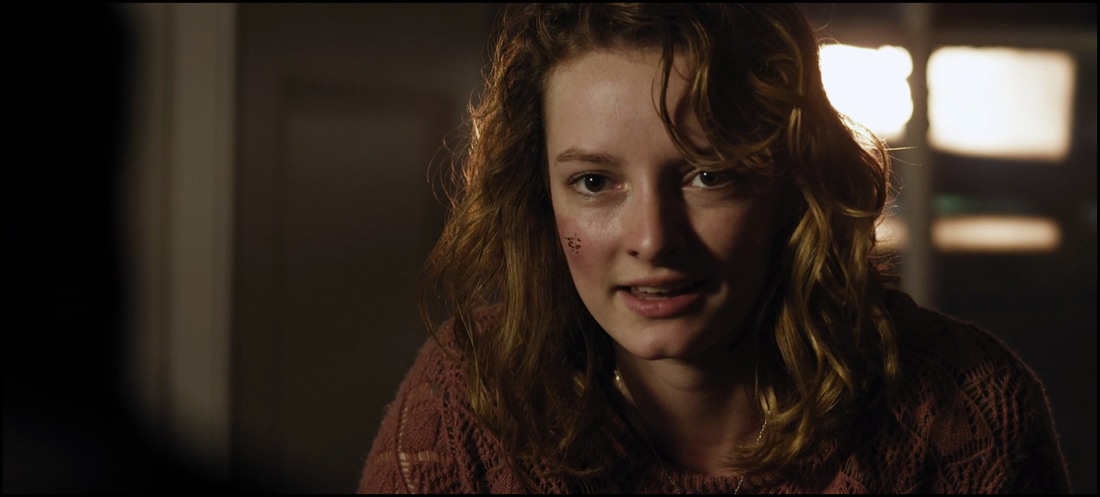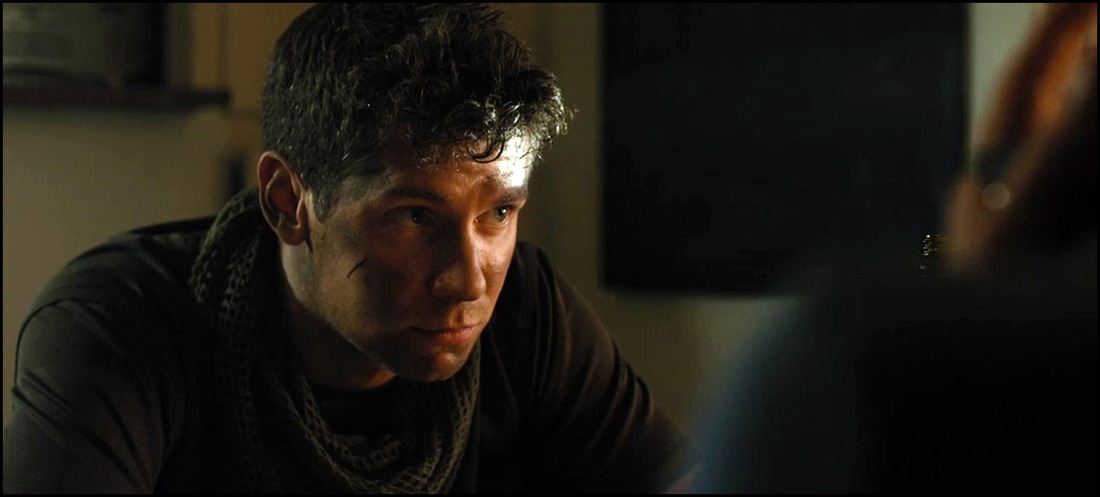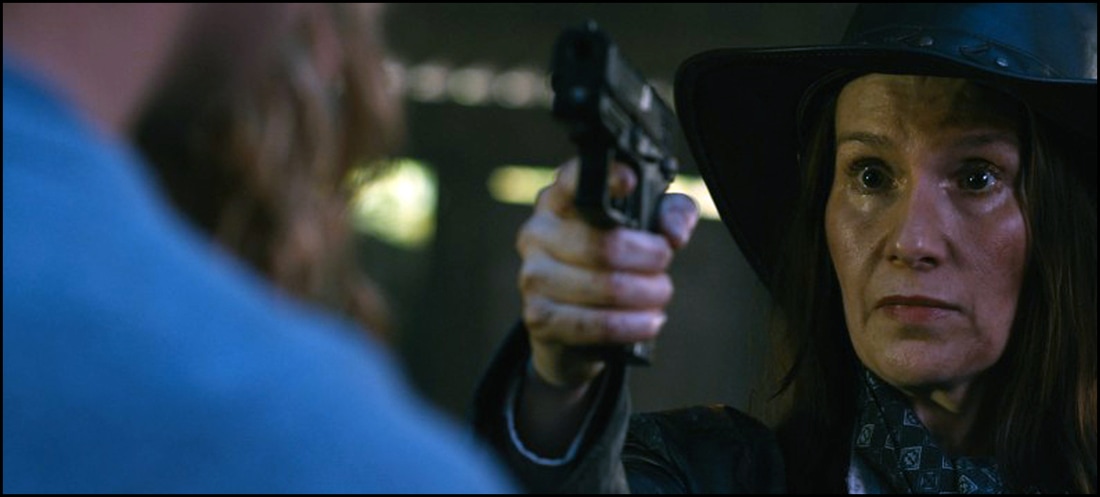Its tales can be humorous or dramatic, serious or lighthearted, and even contemporary or futuristic. Fans of the genre have proven over time a willingness to take in just about any parable, and it’s been my experience that they’re incredibly forgiving of inconsistencies or contrivances so long as they’re given a reasonable beginning, middle, and ending that serves the narrative as best it can. Heck, just look any episode of Star Trek’s third season, and it’s obvious that even the most discerning Trekkie has a good heart about glib yarns.
Where SciFi can get a bit tricky is when the independent feature tries to squeeze itself into that genre’s already wide corridor. Traditionally, the indie flick tends to be far more about character and/or atmosphere than it does the usual flash and sizzle of the more fantastical accounts. For example, 2014’s EX MACHINA took the indie’s character-driven focus and adapted it soundly to its tale of cautionary artificial intelligence, but 2015’s UNCANNY took largely the same ideas and fully realized it as a legitimate independent feature: one found critical success (the former) while the second never really found its audience.
This is why films like THE QUIET HOUR really have the deck stacked against them: without some solid substance between the opening and closing credit rolls, it’s destined for obscurity.
From the product packaging:
“Humans are few and far between since Earth was invaded by unseen extra-terrestrial machines that harvest the planet’s natural resources and relentlessly kill its inhabitants. In a remote part of the countryside, where starved humans have become as dangerous as the alien machines hovering in the sky, a feisty 19-year-old girl, Sarah Connolly sets out on a desperate attempt to fight back a ground of bandits and defend her parents’ farm …”
There’s a bit more, but that’s really all that’s needed to understand where HOUR’s story comes from and how its characters interact, and – to its credit – the film stays that course crafted by writer/director Stéphanie Joalland. This is essentially a tale of survival, but it’s doubly one of invasion, the first of extraterrestrials and the second of humans. There’s even a near parallel of “drilling” as the heroine Sarah (played by the lovely Dakota Blue Richards) almost endears a sexual assault, one shadowing back to the aliens repeatedly boring into our planet’s surface; yet it’s all handled metaphorically with some subtlety as the Earthly aggressor gets thwarted by another before he can consummate the attack.
Sadly, no matter how hard Richards and her co-stars try, HOUR feels more like a bad weekender as the hours march on with little effect, dwindling impact, and/or interesting character development.
Sarah is crafted with a youthful nobility – she’s keeping watch over her family’s stead – because it’s the responsible thing to do, but Joalland’s script never gives her any other depth: sure, she might be hiding a secret or two from her brother, but we all do that, don’t we? You don’t tell your sibling about that time mom slipped up and said you were her favorite, right? Or when dad had too much to drink? Sure, Sarah’s a good kid – resourceful, even quite comely – but why didn’t she do a better job at hiding pop’s grave? Think of her as Katniss Everdeen for the ‘sticks,’ if you’re familiar with the term.
Tom is even lesser a creation, perhaps given a token disability in order to heighten the suspense when his blindness really never plays necessarily into their present circumstance. (Yes, I caught that the death of his mother was the last thing he saw, but it was all delivered so flatly I’m not sure it mattered.) McMullen certainly did what he could with the character, but as written by Joalland I got the feeling Tom was supposed to be vastly younger than the twenty-ish adult who incarnated him. Dare I suggest that the casting was all wrong? If he were a child, then Sarah’s forced servitude might’ve been a touch more meaningful, but when hindsight is twenty-twenty I try not to overthink it that much.
Still, HOUR deserves credit for effectively creating this slimmed down bleak glimmer into what survival for the truly rural class post-invasion looks like. Dozens of good wartime features have taken the same tact – a soldier stumbles into a small community, and then the survivors must band together against the odds – so it stands to reason that Joalland’s film could work if shaved of its more predictable moments and beefed up its characters and effects. In fact, I liked the idea of the small-town perspective so much so that I stuck with this one ‘til the big finish. That in and of itself says something.
You don’t need the shock and awe of big alien spaceships to weave a good tapestry these days; you must deliver audiences to a place they’re willing to visit for 90 minutes, and – in that case – HOUR is about 25 minutes too long and undercooked.
(MILDLY) RECOMMENDED, but – even then – THE QUIET HOUR is mostly for die-hard SciFi fans with plenty of patience. The film’s chief problem isn’t so much its awful pacing as is its disappointing payoff: we end right where we began. Film buffs will sit through practically anything providing a reward in the final reel. HOUR tries to muster up one of mild significance, but coming and going quietly only works if the wild ride in between is worth the investment; and I’m not convinced this one is.
In the interests of fairness, I’m pleased to disclose that the fine folks at Monarch Entertainment provided me with a DVD copy of THE QUIET HOUR (2014) by request for the expressed purposes of completing this review; and their contribution to me in no way, shape, or form influenced my opinion of it.





 RSS Feed
RSS Feed